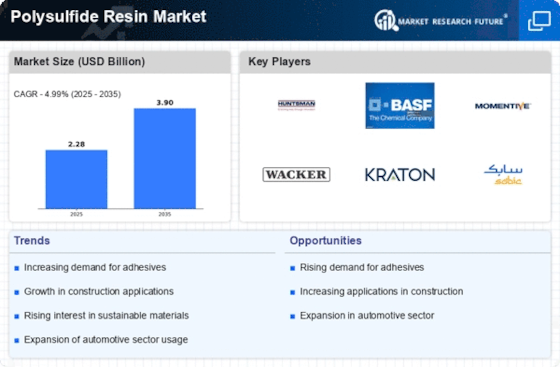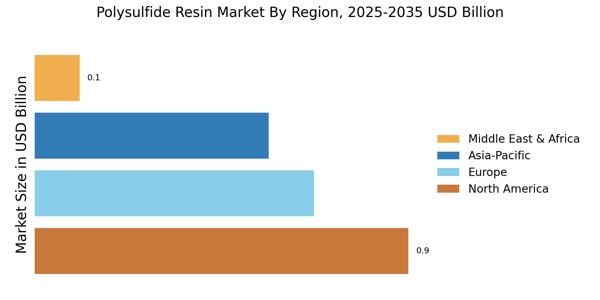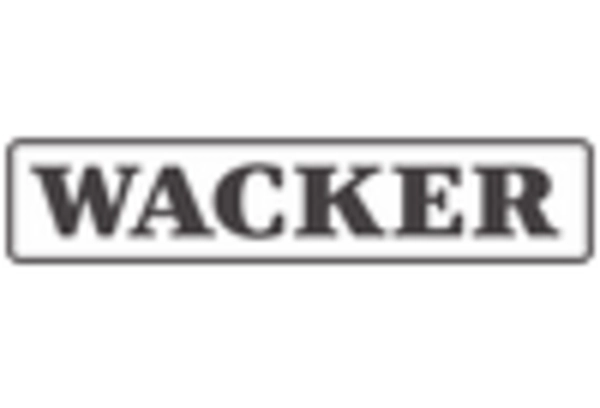Rising Demand in Automotive Sector
The automotive sector is experiencing a notable increase in demand for polysulfide resins, primarily due to their excellent adhesion and flexibility properties. These resins are utilized in various applications, including sealants and adhesives, which are critical for vehicle assembly and maintenance. As the automotive industry continues to evolve, with a focus on lightweight materials and enhanced performance, the polysulfide resin market is likely to benefit significantly. In 2025, the automotive segment is projected to account for a substantial share of the overall market, driven by the need for durable and efficient materials that can withstand harsh environmental conditions. This trend suggests a robust growth trajectory for polysulfide resins in automotive applications.
Expansion in Aerospace Applications
The aerospace industry is increasingly adopting polysulfide resins due to their superior chemical resistance and thermal stability. These properties make them ideal for use in aircraft manufacturing, where materials must endure extreme conditions. The polysulfide resin market is poised for growth as aerospace manufacturers seek materials that enhance safety and performance. In recent years, the demand for lightweight and high-strength materials has surged, leading to a projected increase in polysulfide resin consumption in aerospace applications. By 2025, the aerospace sector is expected to contribute significantly to the overall market, reflecting a shift towards advanced materials that meet stringent regulatory standards.
Technological Innovations in Resin Formulation
Technological advancements in resin formulation are playing a crucial role in shaping the polysulfide resin market. Innovations aimed at enhancing the performance characteristics of these resins, such as improved curing times and enhanced adhesion properties, are driving their adoption across various sectors. Manufacturers are increasingly investing in research and development to create formulations that meet specific industry needs, which could lead to a broader application range for polysulfide resins. As these innovations continue to emerge, the market is expected to expand, with new products entering the market that cater to evolving consumer demands and regulatory requirements.
Increasing Focus on Environmental Sustainability
The polysulfide resin market is experiencing a shift towards environmentally sustainable practices, as manufacturers seek to reduce their ecological footprint. This trend is driven by growing consumer awareness and regulatory pressures to adopt greener materials. Polysulfide resins, known for their durability and longevity, are being formulated to minimize environmental impact while maintaining performance. The market is likely to see an increase in demand for bio-based and low-VOC formulations, aligning with sustainability initiatives across various industries. By 2025, this focus on environmental sustainability is expected to significantly influence purchasing decisions, thereby shaping the future landscape of the polysulfide resin market.
Growth in Construction and Infrastructure Projects
The construction industry is witnessing a resurgence, leading to increased demand for polysulfide resins, particularly in sealants and coatings. These resins are favored for their durability and resistance to environmental factors, making them suitable for various construction applications. The polysulfide resin market is likely to see substantial growth as infrastructure projects expand, driven by urbanization and the need for sustainable building materials. In 2025, the construction sector is anticipated to represent a significant portion of the market, as builders and contractors prioritize materials that offer long-lasting performance and compliance with environmental regulations. This trend underscores the importance of polysulfide resins in modern construction practices.

















